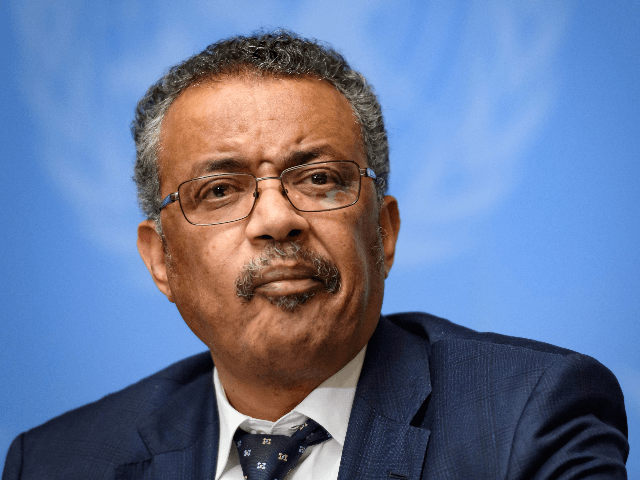Officials at the World Health Organization (W.H.O.) believe the Chinese coronavirus pandemic could “easily drag on deep into 2022” if more are not vaccinated, particularly in poor countries.
The W.H.O., which recently deemed climate change the “single biggest health threat facing humanity,” believes the pandemic could drag on well into the next year, particularly if efforts to get vaccinations to poorer countries fail.
Dr. Bruce Aylward, a senior leader at the organization, said a failure to do so could cause the pandemic to “easily drag on deep into 2022.” He admitted they are “not on track.”

World Health Organization (WHO) Director-General Tedros Adhanom Ghebreyesus wants to halt the administration of booster shots to focus more on vaccinating populations in less developed countries. (FABRICE COFFRINI/AFP via Getty Images)
“We really need to speed it up or you know what? This pandemic is going to go on for a year longer than it needs to,” he warned, urging wealthier countries to sacrifice vaccine shots to help get poorer countries vaccinated.
According to Al Arabiya, the vaccination rate in Africa, for example, is just five percent. The W.H.O. reportedly wants every county to see vaccination rates of 40 percent by the year’s end.
The warning comes on the heels of W.H.O. Director-General Tedros Adhanom Ghebreyesus urging countries worldwide last month to halt the administration of booster shots to focus more on vaccinating populations in less developed countries.
“[T]oday I am calling for an extension of the moratorium until at least the end of the year, to enable every country to vaccinate at least 40 percent of its population,” Tedros said September 8.
According to Our World in Data, 48.3 percent of the world has received at least one dose of a coronavirus vaccine, with 6.8 billion doses administered altogether.
“Only 3% of people in low-income counties rev received at least one dose,” it added.

COMMENTS
Please let us know if you're having issues with commenting.